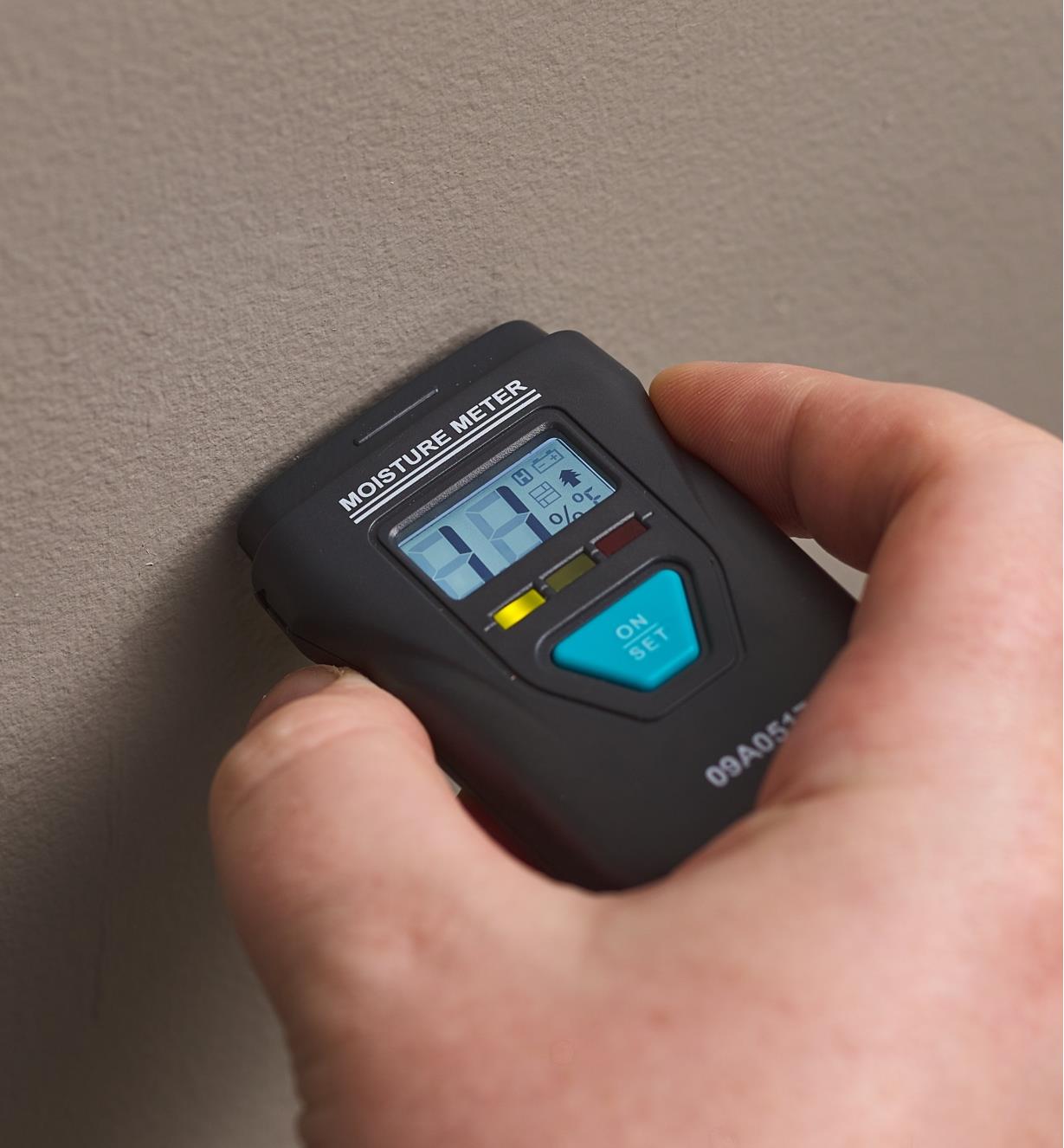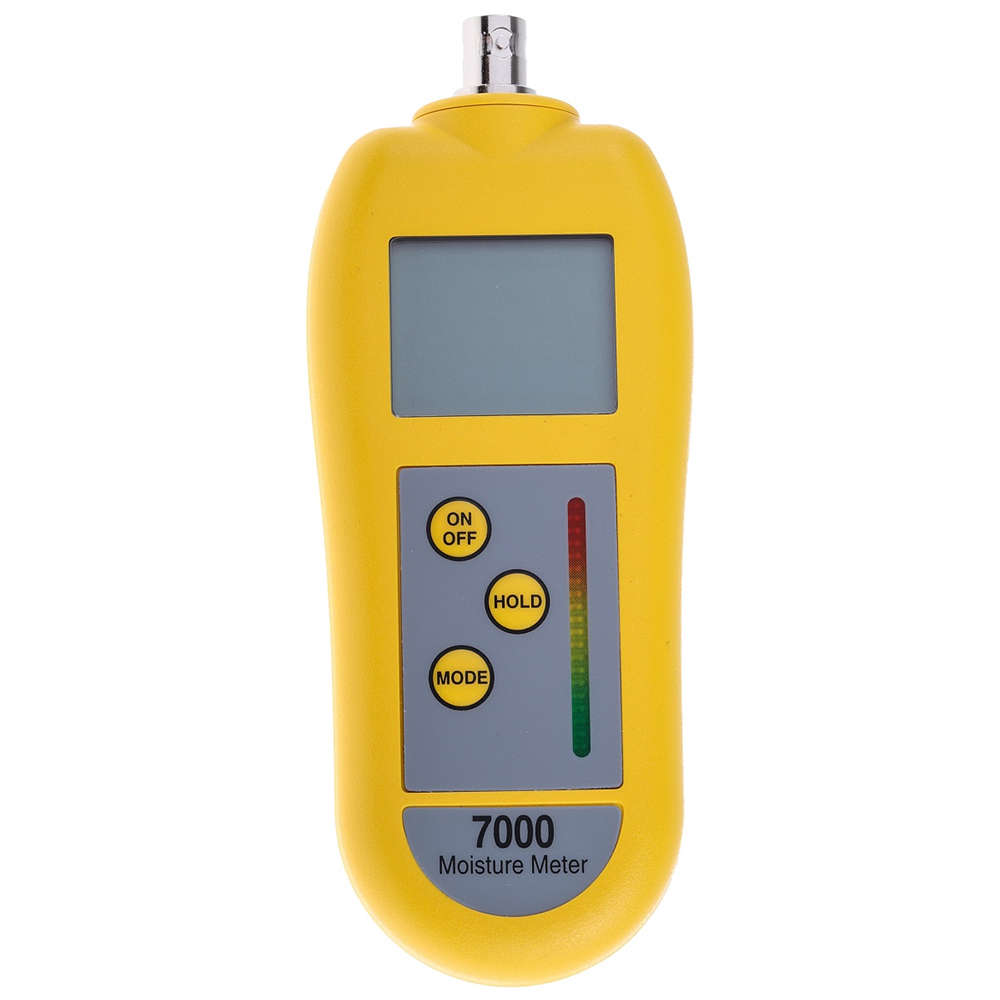Moisture Meter Purchasing Overview: What to Try to find in High-Quality Instruments
Moisture Meter Purchasing Overview: What to Try to find in High-Quality Instruments
Blog Article
The Ultimate Overview to Moisture Meters: A Comprehensive Review and How They Can Conserve You Money
In the realm of building upkeep, construction, and various sectors, the significance of precisely measuring moisture degrees can not be overstated. Wetness meters act as vital tools in detecting and keeping an eye on moisture content in materials, assisting in stopping expensive problems and making certain the top quality of products. Recognizing the nuances of various sorts of moisture meters, their applications, and the prospective cost-saving benefits they provide can be a game-changer for professionals and companies alike. Finding how these gadgets can not just enhance procedures yet additionally contribute to financial savings is a journey worth starting.
Kinds Of Moisture Meters
Different sorts of dampness meters are offered for various applications in numerous industries. One typical type is the pin-type moisture meter, which gauges the electric resistance in between 2 pins put right into a product. This kind is ideal for wood, drywall, and other structure products. Pinless moisture meters, on the other hand, use electromagnetic sensor plates to check a bigger area without triggering damage to the product's surface area. These meters are excellent for rapidly examining wetness degrees in huge areas such as wall surfaces and floors.
Infrared wetness meters measure the thermal properties of a material to identify its dampness material non-invasively, making them helpful for applications where pin or pinless meters may not be appropriate. Recognizing the various kinds of dampness meters readily available can aid markets choose the most suitable tool for their particular wetness dimension requirements.

Advantages of Utilizing Moisture Meters

Moreover, utilizing dampness meters can result in boosted energy performance. By recognizing locations with high wetness levels, such as leakages or poor insulation, modifications can be made to improve power preservation and reduce energy costs. In agricultural settings, moisture meters play a vital role in maximizing plant yields by enabling farmers to monitor soil dampness levels and make informed irrigation choices. Generally, the benefits of making use of dampness meters extend across different markets, supplying economical remedies and promoting far better quality assurance practices.
How to Pick the Right Moisture Meter
Choosing the ideal dampness meter includes considering essential variables such as material compatibility, measurement range, and calibration precision. When picking a wetness meter, it's necessary to make certain that the meter is ideal for the specific material you will be testing. Different products have differing electric residential properties that can influence dampness analyses, so choosing a meter created for your material news is critical for accurate outcomes. Furthermore, take into consideration the dimension range of the wetness meter. Guarantee that the meter can identify wetness degrees within the range needed for your applications. Calibration precision is one more essential aspect to keep in mind (Moisture Meter). Choose a dampness meter with reputable calibration to make certain accurate and consistent readings. Some meters might require periodic calibration changes, so comprehending the calibration process is essential. By view meticulously evaluating these variables, you can select a dampness meter that satisfies your demands and gives precise moisture measurements for your tasks.
Proper Strategies for Moisture Meter Use
To make certain exact dampness readings and make best use of the efficiency of a dampness meter, employing appropriate strategies is essential. When utilizing a pin-type wetness meter, insert the pins or probes into the material being tested up until they make complete contact. By adhering to these appropriate methods, customers can count on their dampness meter to supply reliable dampness levels, assisting in protecting against expensive damage or making certain top quality in numerous applications.

Cost Savings Via Moisture Meter Applications
Exactly how can the critical use of moisture meters lead to substantial price savings throughout numerous sectors? In the farming sector, dampness meters aid in determining the optimal time for collecting crops, protecting against over-drying or excess moisture that can influence the last item's quality.

Furthermore, in the food processing sector, moisture meters are essential for keeping track of product top quality and guaranteeing this post conformity with security guidelines. By precisely gauging wetness content in food, producers can prevent wasting, maintain quality, and lower waste, resulting in significant price savings. On the whole, the critical application of wetness meters is a beneficial investment that can result in significant expense decreases and enhanced effectiveness across various markets.
Final Thought
To conclude, moisture meters are beneficial devices for determining and detecting moisture levels in different materials. By making use of the ideal dampness meter and adhering to proper strategies, customers can efficiently prevent expensive damages triggered by excess dampness. Purchasing a top quality dampness meter can bring about significant expense financial savings in the future by determining possible issues early and allowing timely remediation. Inevitably, dampness meters are necessary instruments for keeping the stability and durability of products and frameworks.
Dampness meters serve as crucial devices in spotting and keeping track of moisture material in materials, aiding in stopping costly damages and making sure the quality of products. Infrared dampness meters measure the thermal residential properties of a material to identify its moisture content non-invasively, making them valuable for applications where pin or pinless meters might not be appropriate.Wetness meters use vital benefits in precisely keeping an eye on and examining wetness levels in diverse materials and environments. In farming setups, wetness meters play an essential role in maximizing plant yields by making it possible for farmers to keep track of soil moisture degrees and make notified watering choices.In final thought, wetness meters are useful tools for spotting and measuring dampness degrees in various products.
Report this page